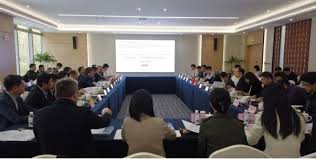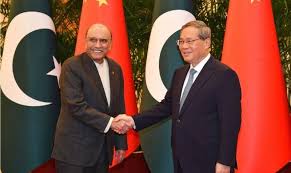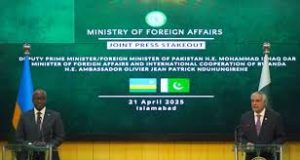China-Pakistan-Portugal workshop highlights joint research on traditional medicine

Beijing: On the heels of the 31st World Traditional Medicine Day, a workshop on international cooperation of medicinal plants between China, Pakistan and Portugal was held at the Ningbo Academician Center.
Organized by Ningbo University, China-Pakistan Center on TCM, Chinese Nutrition Society and China’s National Administration of TCM, the event emphasized the crucial role that TCM research, discovery, and cross-border collaboration play in enhancing healthcare delivery in Pakistan and Portugal.
The integration of Traditional Chinese Medicine (TCM) into modern medical practices is a key focus of Pakistan, and the embassy has recently recommended to the government of Pakistan to consider necessary amendments in the laws and regulations for introducing TCM into Pakistan, highlighted Dr. Noor Muhammad, Counsellor of the Pakistani Embassy in China while emphasizing the myriad benefits that TCM has brought to Pakistan and the global community.
In their speeches, Academician Zhao Yufen, Chinese Academy of Sciences and Wang Xiangdong, Deputy Director of the Yinzhou District Government, Ningbo noted that Pakistan stands as a pharmaceutical consumer market with immense potential, offering vast opportunities for growth, China Economic Net (CEN) reported on Thursday.
Meanwhile, Portugal, being one of the first European countries to complete legislation on traditional Chinese medicine, holds bright prospects for collaboration.
M.Iqbal Choudhary, Vice President of the World Academy of Sciences (TWAS) and Coordinator General of OIC-COMSTECH, revealed ambitious plans for the future, including the establishment of the first TCM hospitals at the medical center of the University of Lahore, the training of 10 Pakistani doctors in TCM over the next two years, and the creation of a BRI Joint Laboratory for Traditional Food and Medicine for Human Health.
We are also pushing forward joint research programs on the chemistry, pharmacology, pre-clinical and clinical studies of medicinal plants used in Uyghur TCM, as well as joint manufacturing of TCM products, complementary food, and pharmaceuticals in Pakistan for both the national market and for export to the Middle East, Gulf, and Africa, Choudhary said.
Alberto Dias, Professor at the University of Minho in Portugal and Director of the Portugal-China Research Center on Medicinal and Edible Plants, discussed the joint PhD program on Medicinal and Food Plant Resources at the University of Minho. This partnership is crucial for advancing our understanding and use of medicinal plants, he added.
Liu Xinmin, Member of the Expert Advisory Panel on Traditional Medicine at the World Health Organization (WHO), chaired the session. On the occasion, Academician Zhao presented visiting professorship certificates to M. Iqbal Choudhary and Alberto Dias, and presented Choudhary with a key to the Ningbo Academician House.





